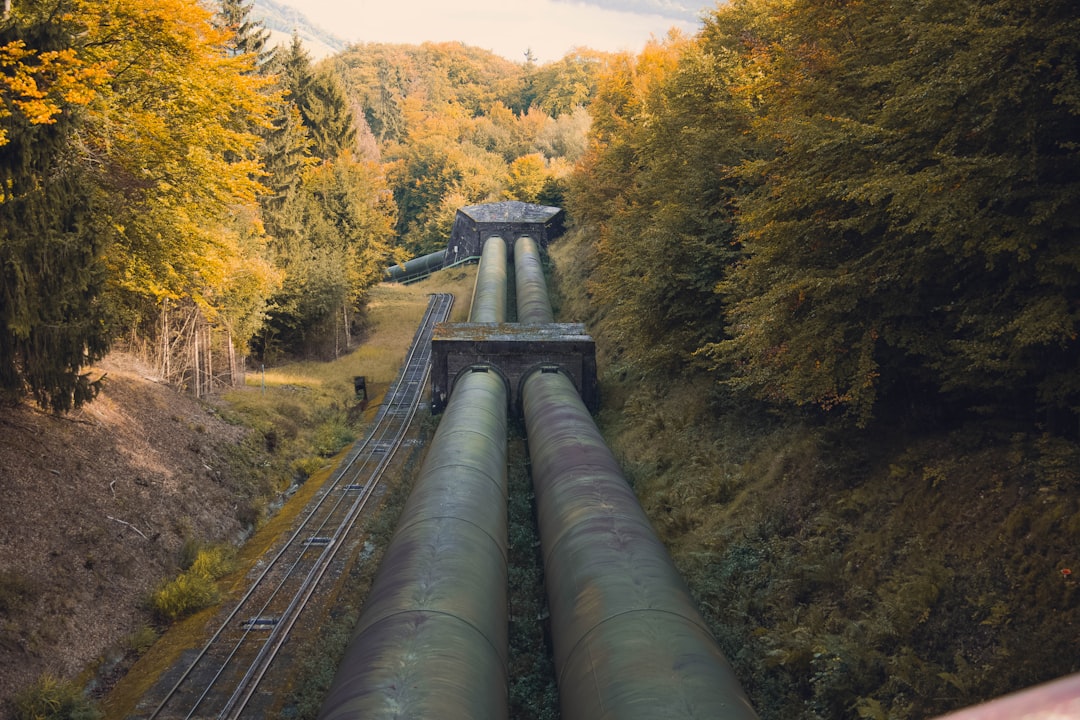The threat to democracy nobody dares mention at the Foreign Interference Inquiry
Likely worse than any of the usual suspects, why is it left out?

Despite the government’s best efforts to avoid it, the Public Inquiry into Foreign Interference in recent Canadian elections is underway in Ottawa. Not surprisingly, its main focus is China and Russia, with India added late to the list.
But some are saying one major threat to our democracy is missing: Big Foreign Oil.
In an article published in Policy Options last fall, researcher Gordon Laxer argues that the public inquiry into foreign interference in Canadian elections, led by Quebec Court of Appeal Justice Marie-Josée Hogue, should target Big Foreign Oil.
Big Foreign Oil
According to its website, the Foreign Interference Commission will examine and assess the interference by China, Russia and other foreign states or non-state actors, including any potential impacts, in order to confirm the integrity of, and any impacts on, the 43rd and 44th general elections (2019 and 2021 elections) at the national and electoral district levels.
The mandate of the commission allows the inquiry to look at foreign states or non-state actors - an important inclusion according to Laxer.
His research highlights the Canadian Association of Petroleum Producer (CAPP) as a major player Canadian politics, emphasizing the extent of foreign influence in the oil industry. Laxer is concerned about CAPP's influence in Alberta and Canada, stating that the organization has actively crusaded against what it alleges were foreign-funded environmental activists.
“China’s election interference has sparked outrage in Canada,” Laxer writes. “But China’s ability to sway a broad spectrum of Canadian voters is far weaker than the Canadian Association of Petroleum Producer’s (CAPP) foreign-funded political interference.”
“Big Foreign Oil’s meddling undercuts the sovereignty of Canadians to determine their own elections perhaps more than any other source. It should be a major focus of the inquiry,” he says.
Laxer’s research shows that most oil and gas companies in Canada are foreign-owned and funded, and they exploit a loophole to engage in election activities by having Canadian-flagged operations in Canada.

“Most oil and gas companies in Canada are foreign-owned and funded, and they use a loophole to fund election activities. This loophole must be closed.”
Gordon Laxer
Toronto Star columnist and author Linda McQuaig agrees with Laxer.
“The fact that the Canadian Association of Petroleum Producers’ (CAPP) board is heavily dominated by foreign-owned companies didn’t stop CAPP from making a concerted effort to determine the outcome of the 2019 Canadian election — and in some devious ways,” she writes. “Its goal was clear: replacing the Trudeau government with the more oil-friendly Conservatives.”
What do you think? Leave a comment.
Close the loophole for Big Foreign Oil
The purpose of the public inquiry, says Laxer, should be to investigate and ultimately ban all foreign-influenced corporations from meddling in elections.
He defines foreign-influenced corporations as those with a certain percentage of foreign ownership, whether it be through a foreign government shareholder or non-government shareholder.
He advocates closing the existing loophole in the Elections Act that allows foreign-owned corporations headquartered in Canada to fund election activities.
“Democracy is currently on trial in the court of Canadian public opinion. To clear the air, the Hogue public inquiry must focus on meddling by Big Foreign Oil as part of its investigations,” writes Gordon Laxer.
Gordon Laxer can be reached at glaxer@ualberta.ca
If you found this article interesting, please share it with others.
Are we living in a post-war, or pre-war period?
Sean Howard says that war planners think WW3 is nearly here

The latest article by Sean Howard, titled "Hypnotized by ‘Deterrence’, or Just Spellbound by the Bomb?" explores the worrisome escalating rhetoric around war preparation in 2024.
Howard says the focus is on the situation in North Korea, where experts suggest that Kim Jong Un may be preparing for war, driven by the belief that the country's growing nuclear arsenal makes an attack worthwhile. The United States, in response, adopts an aggressive deterrence posture, deploying nuclear-armed submarines to South Korean ports.
He criticizes the reliance on nuclear deterrence, arguing that both North Korea and the U.S. are overly confident in the efficacy of their respective arsenals.
Says Howard, “’With the Bomb on our side,’ both sides are intoning, ‘what can possibly go wrong?’”
“A similar Wasteland may be in prospect in Europe, as both NATO and Russia, placing equally unquestioning confidence in their Bomb, assiduously prepare for a confrontation neither would survive.”
Sean Howard
Howard quotes UK Defense Secretary Grant Shapps' recent speech, indicating a shift from a post-war to a pre-war world, raising concerns about the possibility of World War III. His 15 January speech at Lancaster House, ‘Defending Britain from a More Dangerous World’, bluntly claimed that we are “moving from a post-war to a pre-war world.”
A detailed simulation by Stanford University’s Centre for Science and Global Security modelled an escalating nuclear exchange between NATO and Russia, calculating “more than 90 million people dead and injured within the first few hours of the conflict”, triggering civilizational collapse and what former US arms control negotiator Thomas Countryman calls “climate change at supersonic speed.”
Howard questions the effectiveness of nuclear deterrence, pointing out the ominous trends and the risk of nuclear escalation. In the face of such uncertainty, he suggests a need to reevaluate the role of nuclear weapons and raises concerns about the consequences of a potential conflict between NATO and Russia.
Please share this article with friends and colleagues.
Nuclear Armageddon: How Close Are We? - BBC Documentary
Colleagues in the UK brought this BBC documentary which aired last month to my attention. Journalist Jane Corbin investigates the proliferation of nuclear weapons across the globe, timed to the announcement of the Doomsday Clock, an annual event by the Bulletin of the Atomic Scientists I wrote about in last weekend’s newsletter. The documentary has received mixed reviews but is worth watching.
Update on January’s sign-up campaign to support peace education
I am delighted to share that we nearly doubled our goal of 25 new paid subscriber to PeaceQuest last month.
The response is overwhelming due to the generosity of 49 readers who signed-up to make monthly and even annual subscriptions to support this essential work.
We are now well on our way to achieve our annual goal of 300 paid subscribers before Christmas comes around again. Thank you so much.




The largest foreign influence on Canada is the United States. It would be hard to document all the ways, but some of the negative ways are Canada's complete integration in the war making machine of the U.S. Just look at our recent purchases or intents to purchase - the Lockheed Martin F-35 Stealth Bomber for a lifetime cost of at least $77 billion (how many high speed rail lines could be built for that, or just keeping the subways rolling in Toronto?). This purchase ties us into the U.S. digital infrastructure that makes the F-35 operable. Another is the recent intent to purchase Reaper Unmanned military drones and hell fire missiles, all U.S. products. And the war ships being built for our membership in NATO, a U.S. run war machine at costs of more than $100 billion. These machines are not for the defence of Canada but are for offensive attacks on poor global south countries. If we were serious about Canada's security, Canada would be spending on mitigation and adaptation to the Climate Crisis.
This article points out the danger of foreign-owned fossil fuel companies. While we direct our energy to exposing foreign governments' interference, a larger threat goes unexposed and continues with impunity.